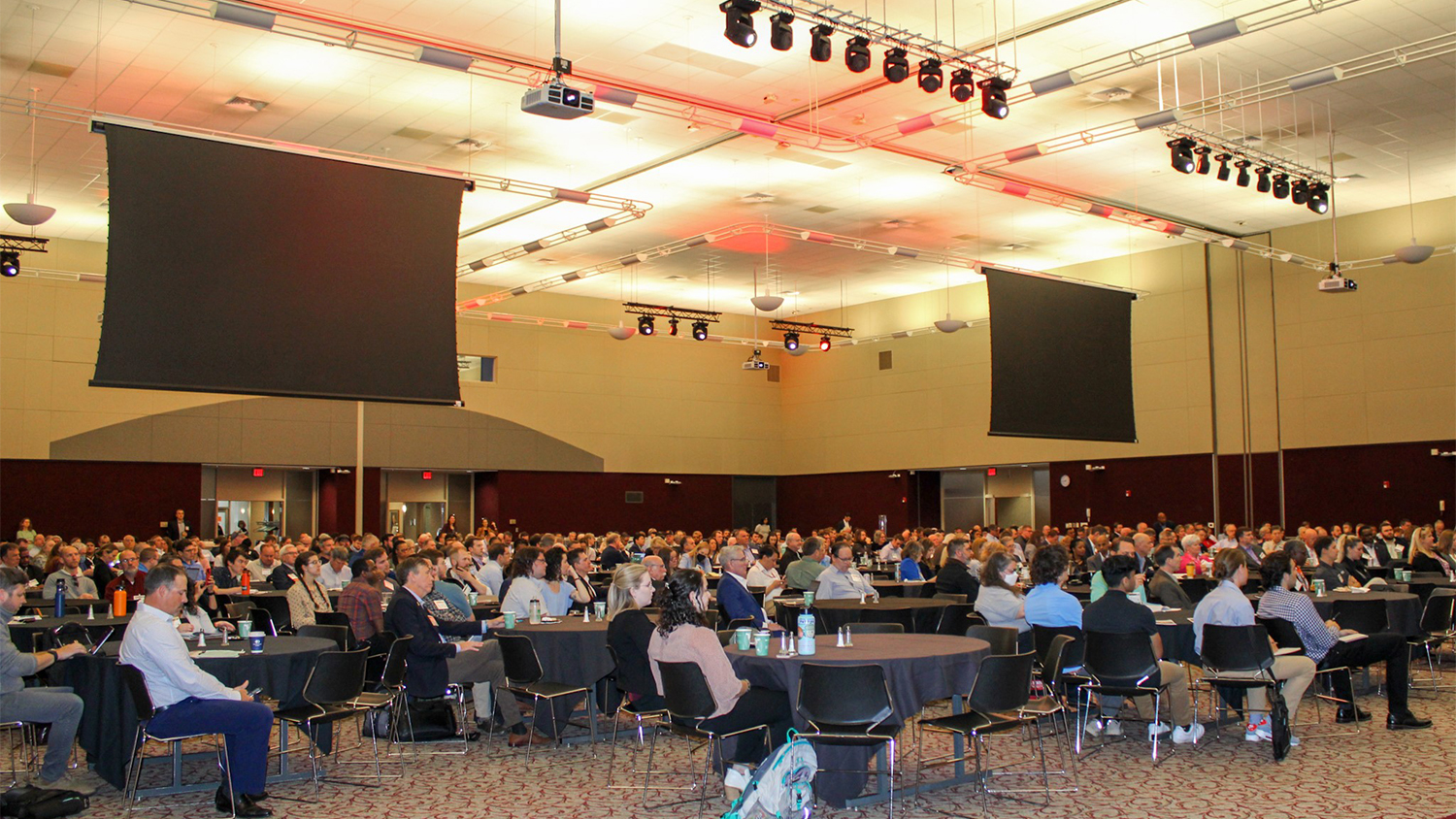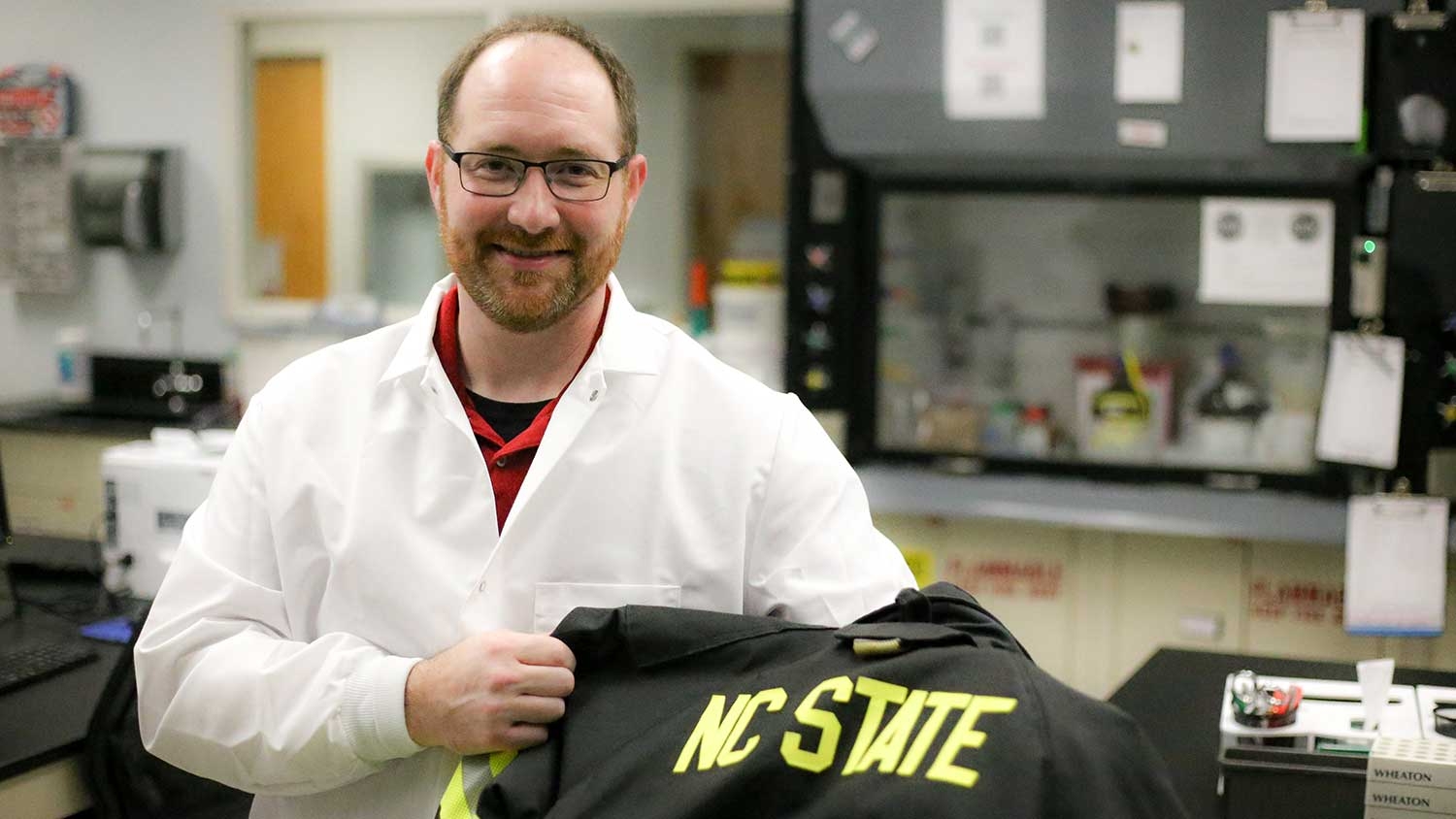DELTA’s Department of Computer Science alumni find growth and community at NC State
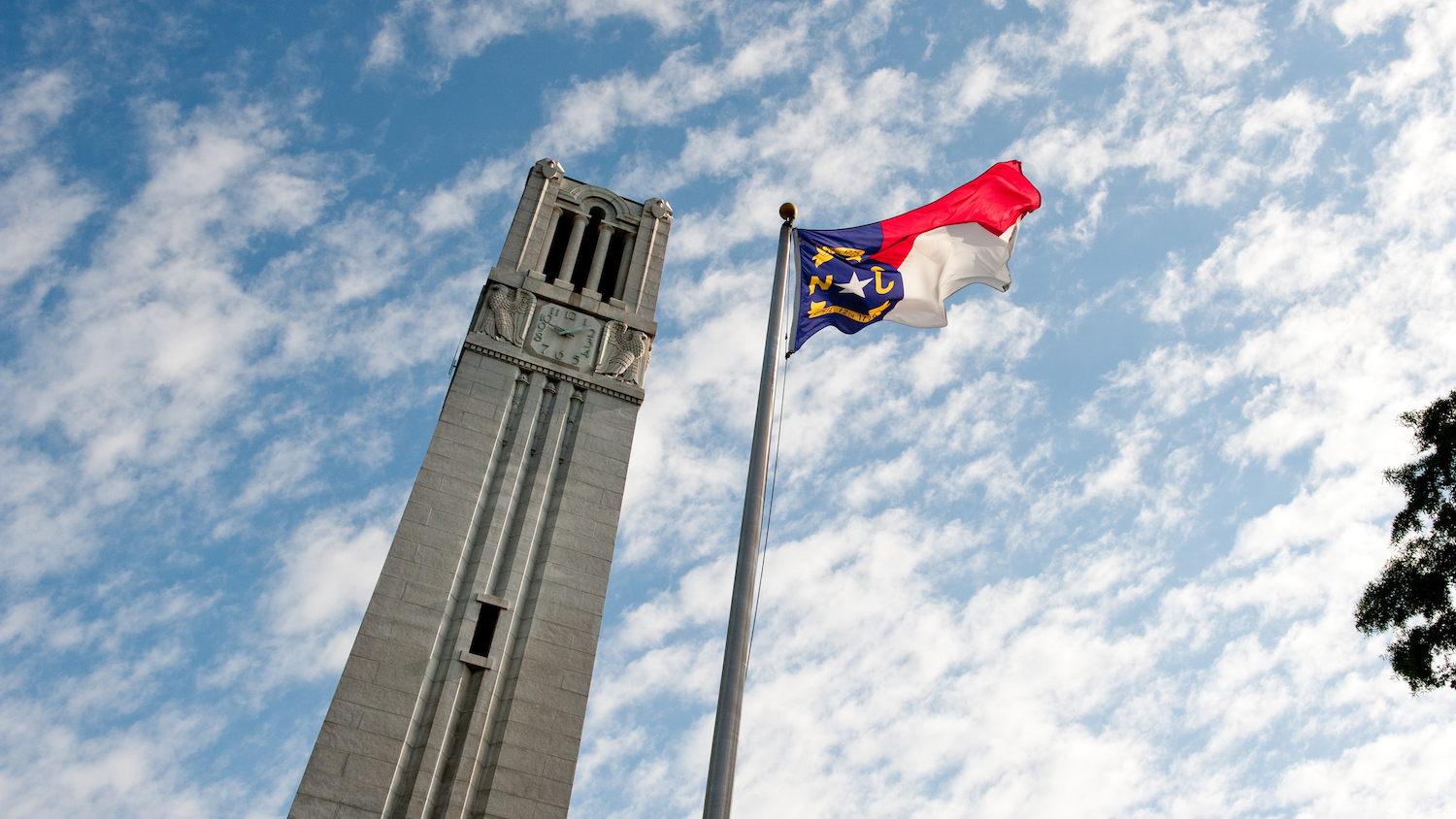
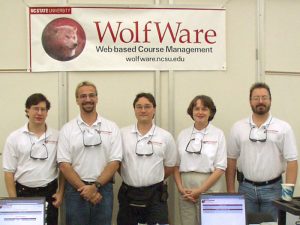
Charles Brabec, Ellen McDaniel and Tim Lowman.
At DELTA, computer scientists sustain the framework of our mission to apply innovative technologies and pedagogies that help faculty and students succeed. As they work to research, implement and support scalable and reliable learning technologies, they not only keep DELTA moving forward, but fuel the entire NC State community with the power and tools needed to achieve and exceed our goals.
Each day, several of our team members take what they learned as computer science students at NC State and use it to support their alma mater. Their contributions have spanned decades and made transformative impacts to the ways students, faculty and staff Think and Do. We caught up with seven Department of Computer Science (CSC) alumni to learn how their time at NC State prepared them to thrive at DELTA and in a field that’s constantly evolving.
All degrees are from NC State unless otherwise noted.
 Daniel Deter
Daniel Deter
Associate Director, Systems Support
Bachelor of Science in Computer Science, minors in English and History
Master of Science in Computer Science
Why did you choose NC State’s computer science program?
At the time (late ’80s), it had one of the best reputations in the nation, and there weren’t nearly as many programs around –– plus, it was about an hour from my home. It’s actually the only program I applied to; once I was accepted I didn’t bother finishing my other applications.
How have your NC State degrees impacted your work at DELTA?
Running the Systems team is all about computer science and information technology, so I use what I learned on a daily basis in my job.
How did your education prepare you to work in a field that is always changing?
It gave me a good grounding in the underlying theory. Even though the field is constantly changing, it is continually building on what came before, and if you go deep enough it’s still using the same algorithms and techniques.
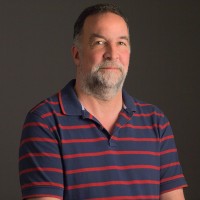 Martin Dulberg
Martin Dulberg
Wolfware Coordinator
Bachelor of Art in Computer Science – Queens College, City University of New York
Master of Science in Computer Science
Ph.D. in Computer Science
How have your NC State degrees impacted your work at DELTA?
It’s made all the difference in the world! I gained a lot of knowledge and insight into the roles different people play on campus and the needs of faculty and students during the time I was earning a degree. This experience has helped me to advocate for and understand the needs of students and faculty in my role as WolfWare coordinator.
Why did you choose NC State’s computer science program?
I applied to 17 graduate programs. I got accepted to some larger programs but I didn’t feel like they were a good fit. NC State was genuinely interested in me, had a program with a great reputation, invited me to come visit and connected me with two great mentors that helped me get started. I felt like I could be successful here, and the program exceeded my every expectation.
What is one of your most memorable moments as an NC State student?
Getting to present at an international conference and being approached by IBM’s top researcher in my field to ask about my research and to consider doing an internship with him.
 Lou Harrison
Lou Harrison
Director of Educational Technology Services
Bachelor of Science in Computer Science
Master of Science in Computer Science, minor in Mathematics, concentration in Computer Graphics
How have your degrees impacted your work at DELTA?
I also ran the technical shop in CSC for 10 years, and my staff and I developed WolfWare Classic back then, so that pretty directly led to what I do at DELTA. The opportunity to help form DELTA in those early days was pretty darned exciting, kind of like the Wild West.
What is it like to work for your alma mater?
I am very happy to do work that brings value to the students, our future generations.
What is one of your most memorable moments as an NC State student?
The plate-sized pancakes for breakfast at the restaurant that used to be under D.H. Hill Jr. Library.
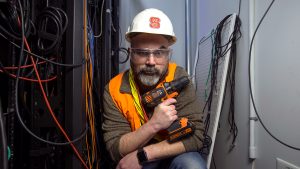 Bill Hicks
Bill Hicks
Senior Systems Architect
Bachelor of Science in Computer Science
What is it like to work for your alma mater?
It’s really great. I feel like I’m giving back to a school that has given me so much. I love my school, and I really love where I work. I am glad I took the path I did because I can’t imagine I’d be as happy as I am anywhere else.
How did your education prepare you to work in a field that is always changing?
The degree is almost 30 years old, so the technology has changed significantly since then. But the basics about algorithms and concepts like resource locks are still very pertinent even today. It also taught me how to learn things on my own and at my own pace. Keeping up with the technology is like drinking from a firehose at times.
What is one of your most memorable moments as an NC State student?
Honestly, graduation. I started in 1989 and didn’t finish until 2004, so completing the degree was very special to me.
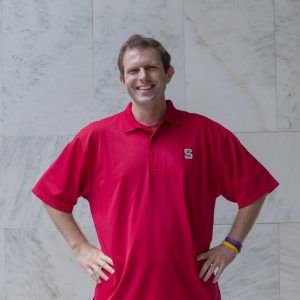 Ben Huckaby
Ben Huckaby
Lead Interaction Designer/Developer
Bachelor of Computer Science, minor in Spanish
Bachelor of Art and Design
How did your education prepare you to work in a field that is always changing?
Both degree programs emphasized problem solving as a skill over all else. That has been incredibly helpful, as it means that I am trained to be in a mindset where the technology and/or tools to produce the solution have always been flexible and secondary to understanding the problem and knowing what needs to be done to address it. I was also exposed to a variety of programming languages and design software during my education, giving me the ability to quickly learn new tools and how to best apply them.
What is one of your most memorable moments as an NC State student?
For my computer science senior design project, I ended up working with three other seniors (one of them being David Tredwell) on a virtual campus tour for the (then brand new) E. Carroll Joyner Visitor Center. This was not only my early introduction to using games for an educational purpose, but it was also a project where I was able to use both of my areas of study to benefit the team. That project, and then being employed as a part-time staff member at DELTA upon graduating from the CSC program, really opened my eyes to how interactive media could be used to help people learn and ignited the passion I have for it today.
What is it like to work for your alma mater?
I love being in a place where I can not only watch how the university grows and changes over the years, but especially how I can help be a part of the success and growth. It also instills a deeper sense of loyalty and pride in my work. The feeling of belonging to a family I had as a student has only become stronger as an employee.
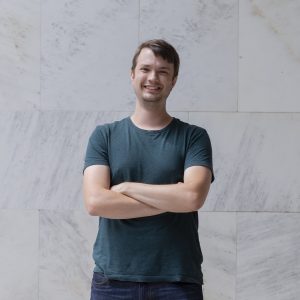 David Tredwell
David Tredwell
Senior Interaction Designer/Developer
Bachelor of Science in Computer Science, minor in Art and Design
How has your NC State degree impacted your work at DELTA?
It’s enabled me to both explore challenges from multiple angles and use existing skills or research new ones to tackle them.
What is one of your most memorable moments as an NC State student?
Close to completing my undergraduate degree, I got a summer internship at DELTA! I was part of a team of students who participated in a national challenge to model our entire campus in 3D so that it could show up in Google Earth! It was a wonderful experience, let me get to know the campus better, and hooked me with DELTA culture!
How did your education prepare you to work in a field that is always changing?
So much of my work involves identifying and solving puzzles, and I think all of the classes I took, from design and computer science to fantasy literature and 3D modeling, let me examine new things (or things that are new to me) with fresh eyes and energy. I also think it helps me keep an open mind about different subject matters, and I try to glean whatever I can from the passionate experts we work with.
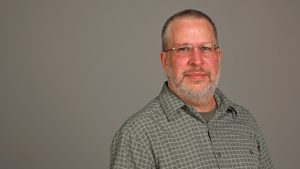 Jeff Webster
Jeff Webster
Senior Associate Director, Applications Development
Bachelor of Science in Mathematics
Bachelor of Science in Computer Science, minor in English
Master of Science in Mathematics
Master of Computer Science
How have your NC State degrees impacted your work at DELTA?
While I don’t do much coding anymore, I am frequently looking at application and system architecture as well as performance tuning, topics that were covered in my senior and graduate CSC courses. Using early versions of “submit” in my undergraduate CSC courses had strong influences on my early work to expand the service to MA courses and then to co-developing WolfWare Classic. That previous work on WolfWare Classic strongly influenced my decision to join DELTA as associate director, applications development, when the job became available.
What is one of your most memorable moments as an NC State student?
On the fun side, trying to get around campus after the massive ice storm in December 1989.
On the educational side, being part of the organizing committee for the Linux Expo hosted by NC State in 1995 and 1996 was fun. Linux was just starting to gain notice at that point and we were able to get several of the important players to come to NC State for our conference. Helping create those interactions that spurred the success that Linux has now is special.
How did your education prepare you to work in a field that is always changing?
For my degrees, one of the common themes was problem solving. Having that foundational knowledge on how to think through a problem, develop a potential solution and then figure out implementation lends to being able to work in a changing field. You are already used to looking for new tools to help in implementation, so are naturally positioned for an ever changing technical landscape.
—
DELTA enhances our work and creates rewarding learning opportunities by hiring student interns and part-time staff from CSC to work alongside our full-time staff. These students and professionals arrive with their own talents and backgrounds in computer science to approach initiatives with new perspectives and contribute to our ever-expanding body of knowledge.
This post was originally published in DELTA News.
- Categories:

